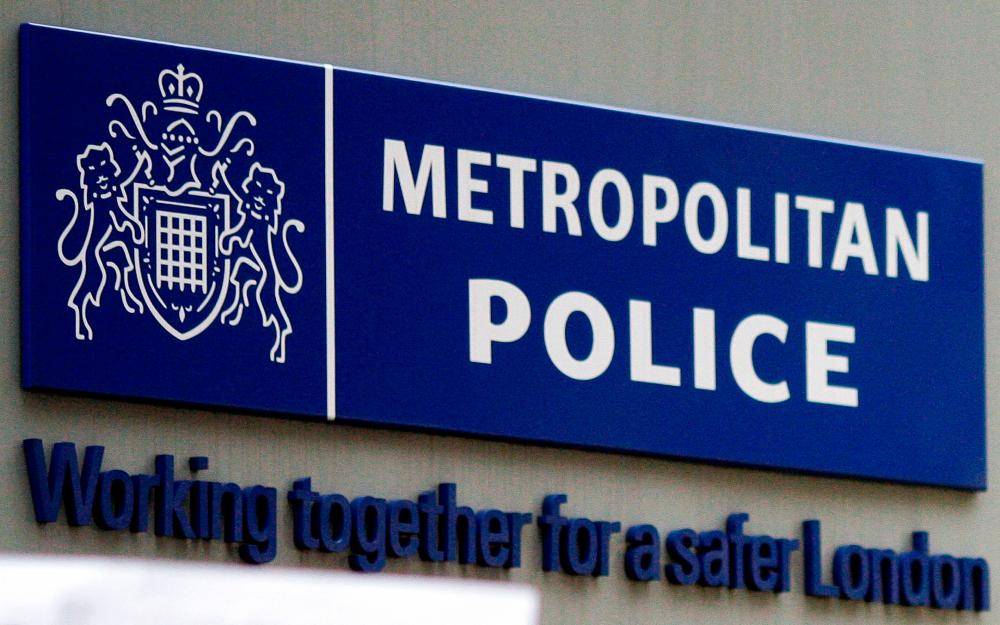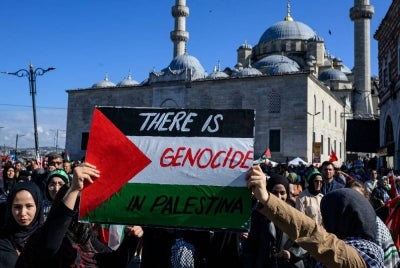London police to train officers to call out sexism, misogyny

LONDON - The Metropolitan Police will train its officers and staff to identify and call out sexism and misogyny as part of its efforts to tackle violence against women and girls (VAWG), reported German news agency (dpa).
The force's 10-point plan, launched on Friday, outlines a series of commitments aimed at building trust and confidence, continuing to pursue perpetrators and creating safer spaces for the public.
Among these are a promise to "treat VAWG as a 'whole Met response', not just for those in dedicated roles", and improving victim care through a new multi-agency victim hub.
A new training programme to transform the Met's culture will also be implemented with specific focus on sexism and misogyny, while all new and current officers and staff in the force will be trained to identify and call out such behaviours.
London's police service has been rocked by several high-profile scandals involving women in recent years, including the murder of Sarah Everard by serving Met officer Wayne Couzens and the unmasking of former constable David Carrick as a serial abuser and rapist.
A review by Baroness Casey published in March also found the Met to be institutionally racist and misogynist.
Speaking at a media briefing, Met Deputy Assistant Commissioner Helen Millichap said a comprehensive internal analysis in the new year would lead to "a really clear training design" on sexist and misogynistic guidelines.
Asked how some of the concerns raised in Baroness Casey's review would be addressed, she said the plan highlighted the caseloads of officers in the Community Safety Unit (CSU) - those dealing primarily with domestic abuse - as an issue that would be resolved with greater investment.
Millichap added that the plan also identifies threatened violence and abuse towards women and girls online as an area that should be "really prioritised".
A progress update on the plan will be published by the Met after six months, and Millichap stressed this would serve as the key point in determining the plan's impact.
She said: "Whereas I think previously the danger has sometimes been that more work is seen as the domain of public protection teams and the investigators, this is taking a much broader, holistic whole system look at it.
"The metrics and the ways that we'll report success are actually quite complex and... some of it might be improved charge rate, some of it will be the existence of an external scrutiny panel, those sorts of things.
"But we're being really careful to make sure that we can show where we started from and what difference we've made in each of the commitments."
Charges for rape and serious sexual offences have increased by 41 per cent compared with last year while the number of stalking protection orders has doubled, the Met said.
Nequela Whittaker, 35, from Brixton, was a victim of child abuse when she was raped aged 11, and is now a youth and community development worker.
Reacting to the launch of the action plan, Whittaker said: "It's nice that there is an agenda that is specifically for women and girls, and it's nice that we are at the forefront with this now being a topic of discussion.
"Before, we were so far down on the margin in terms of what does representation look like, how we got support from the Metropolitan Police and what the outcomes were looking like, so it's nice to have them now taking accountability for all the things that weren't quite working beforehand."
Whittaker said the 10 commitments were a good starting point, but questioned whether each one would receive enough attention if all were worked on at once.
She said: "If you're given six months for one pillar to see it's the pre and the post-outcome, that's feasible.
"If we're looking at talking about 10 commitments over six months, for me, I don't feel like each area is going to get the right light shined on it."
Jamie Klingler, women's rights campaigner for Reclaim These Streets, said: "It's taken three years from the so-called watershed moment of Sarah's murder to get a four-page report that uses reported rape statistics from 10 years ago to tell us that the 'new' Met will suddenly care about VAWG.
"The two redeeming things I can see in the report are that the force is taking responsibility for eliminating police perpetrated domestic violence and sexual violence - which should be obvious, but has not been a priority and is absolutely crucial for any trust to be restored - and using the Operation Soteria programme in rape investigations.
"But if they are still relying on data from 2013, vetting from 2013 and behavioural science from 2013 then the new Met isn't any different than the old." - BERNAMA-dpa
Download Sinar Daily application.Click Here!














